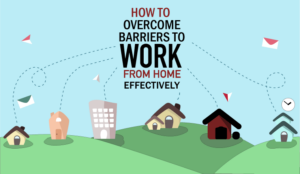Michael Gray at Sensée shares insights on how to determine when homeworking is right for you.
Sensée may be a business that’s been 100% homeworking (and promoting home and hybrid working best practice) for over 17 years but they’ve always been the first to recognise that homeworking isn’t for everyone.
So how do you know when it is likely to work? And how do you estimate its true potential?
With the Government currently considering its stance on ‘advising’ businesses to go back to the office, and many organisations announcing their post lockdown office-versus-home strategies, there’s never been a better time to address those questions.
Deloitte’s recent statement certainly attracted a lot of attention. The professional services giant said that 20,000 UK workers can decide how often they come into the office once the pandemic is over ‘in balance with their professional and personal responsibilities’.
It is a bold move, and in contrast to some of its rivals. PwC, for example, said it expects its workers to spend at least 40% of their time with colleagues, in the office, or on client visits, once COVID-19 restrictions allow; while it was reported in May that EY expects UK workers to spend around two days a week working from home, splitting the rest of their time between the office and client workplaces.
The only logical conclusion one can draw is that there’s no blueprint for hybrid working success yet, even amongst those in the same sector.
Another interesting question raised by Deloitte’s move is ‘when will homeworking be in balance with someone’s professional and personal responsibilities?’ For it’s not always down to the individual to decide whether work-from-home (WFH) is desirable or appropriate. Sometimes it’s more down to the employer.
The obvious example is when a job is location-specific. If you work in a shop or a factory, WFH is rarely an option (unless of course you take your business online). The same is true if you run a leisure centre or play football.
Then there are those who can’t do their jobs as effectively at home because their employers don’t provide the virtual tools and processes to enable them to do so.
Being a management consultant who can operate effectively with a computer, a broadband connection, a phone and a headful of knowledge is one thing.
Being a contact centre advisor that works as part of team, reliant on specialist systems and processes to operate, communicate, manage, train and schedule efficiently is something else.
To operate WFH successfully often takes a virtual mindset across everything from recruitment to scheduling and that can take a lot of planning, knowledge, investment – and commitment.
When considering your hybrid options, it is also important to take into account that many people don’t want to WFH. It is probably not what they signed up to when they joined your business.
Some people – and especially younger age groups – crave the social interaction and the coffee machine chat they get in the office. The drive into work can be a valued part of their daily work routine too. It is part of who they are… and we are all different.
There are advantages to working in the office just as there are advantages to working from home.
Where WFH works best is when the advantages of ‘voluntary’ homeworking (flexible working hours, no commute to work, no time wasted travelling to work etc.) outweigh the advantages of working in the office. And then only when your job is conducive to WFH and your employer has made all the necessary investments and prepared properly for the move.
There’s been a temptation during lockdown to think of WFH in binary terms: i.e. it’s a good idea or a bad idea. Home and hybrid working is actually a lot more complex than that.
Author: Guest Author
Published On: 24th Jun 2021 - Last modified: 29th Jun 2021
Read more about - Guest Blogs, Sensee



































